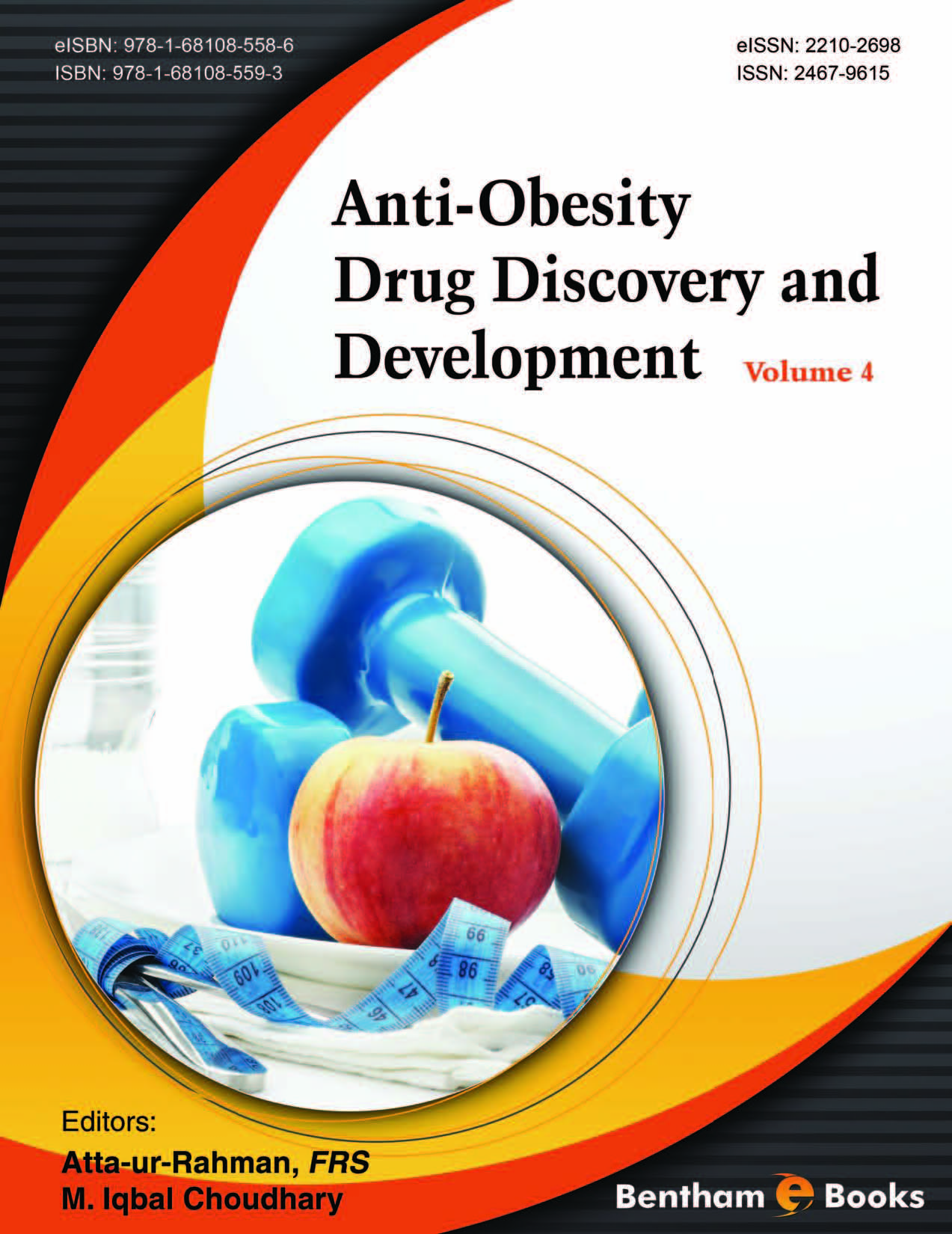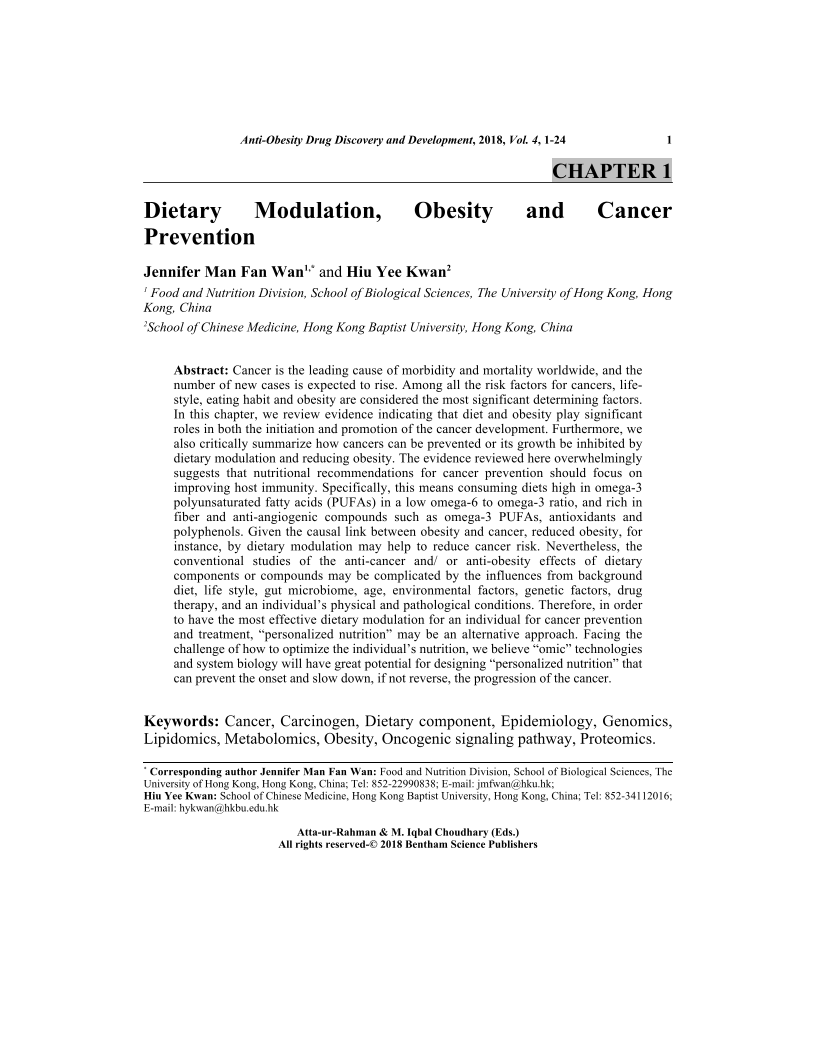Dietary Modulation, Obesity and Cancer Prevention

- Authors: Jennifer Man Fan Wan1, Hiu Yee Kwan2
-
View Affiliations Hide Affiliations1 Food and Nutrition Division, School of Biological Sciences, The University of Hong Kong, Hong Kong, China. 2 School of Chinese Medicine, Hong Kong Baptist University, Hong Kong, China
- Source: Anti-Obesity Drug Discovery and Development: Volume 4 , pp 1-24
- Publication Date: December 2018
- Language: English
Dietary Modulation, Obesity and Cancer Prevention, Page 1 of 1
< Previous page | Next page > /docserver/preview/fulltext/9781681085586/chapter-1-1.gif
Cancer is the leading cause of morbidity and mortality worldwide, and the number of new cases is expected to rise. Among all the risk factors for cancers, lifestyle, eating habit and obesity are considered the most significant determining factors. In this chapter, we review evidence indicating that diet and obesity play significant roles in both the initiation and promotion of the cancer development. Furthermore, we also critically summarize how cancers can be prevented or its growth be inhibited by dietary modulation and reducing obesity. The evidence reviewed here overwhelmingly suggests that nutritional recommendations for cancer prevention should focus on improving host immunity. Specifically, this means consuming diets high in omega-3 polyunsaturated fatty acids (PUFAs) in a low omega-6 to omega-3 ratio, and rich in fiber and anti-angiogenic compounds such as omega-3 PUFAs, antioxidants and polyphenols. Given the causal link between obesity and cancer, reduced obesity, for instance, by dietary modulation may help to reduce cancer risk. Nevertheless, the conventional studies of the anti-cancer and/ or anti-obesity effects of dietary components or compounds may be complicated by the influences from background diet, life style, gut microbiome, age, environmental factors, genetic factors, drug therapy, and an individuals physical and pathological conditions. Therefore, in order to have the most effective dietary modulation for an individual for cancer prevention and treatment, "personalized nutrition" may be an alternative approach. Facing the challenge of how to optimize the individuals nutrition, we believe "omic" technologies and system biology will have great potential for designing "personalized nutrition" that can prevent the onset and slow down, if not reverse, the progression of the cancer.
-
From This Site
/content/books/9781681085586.chapter-1dcterms_subject,pub_keyword-contentType:Journal -contentType:Figure -contentType:Table -contentType:SupplementaryData105

